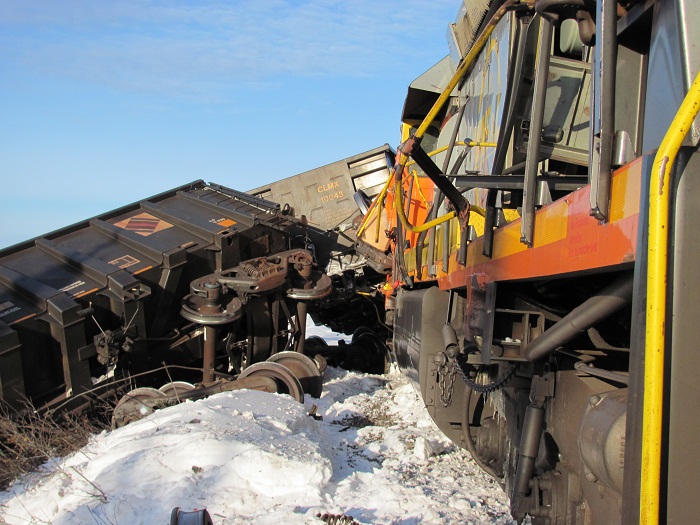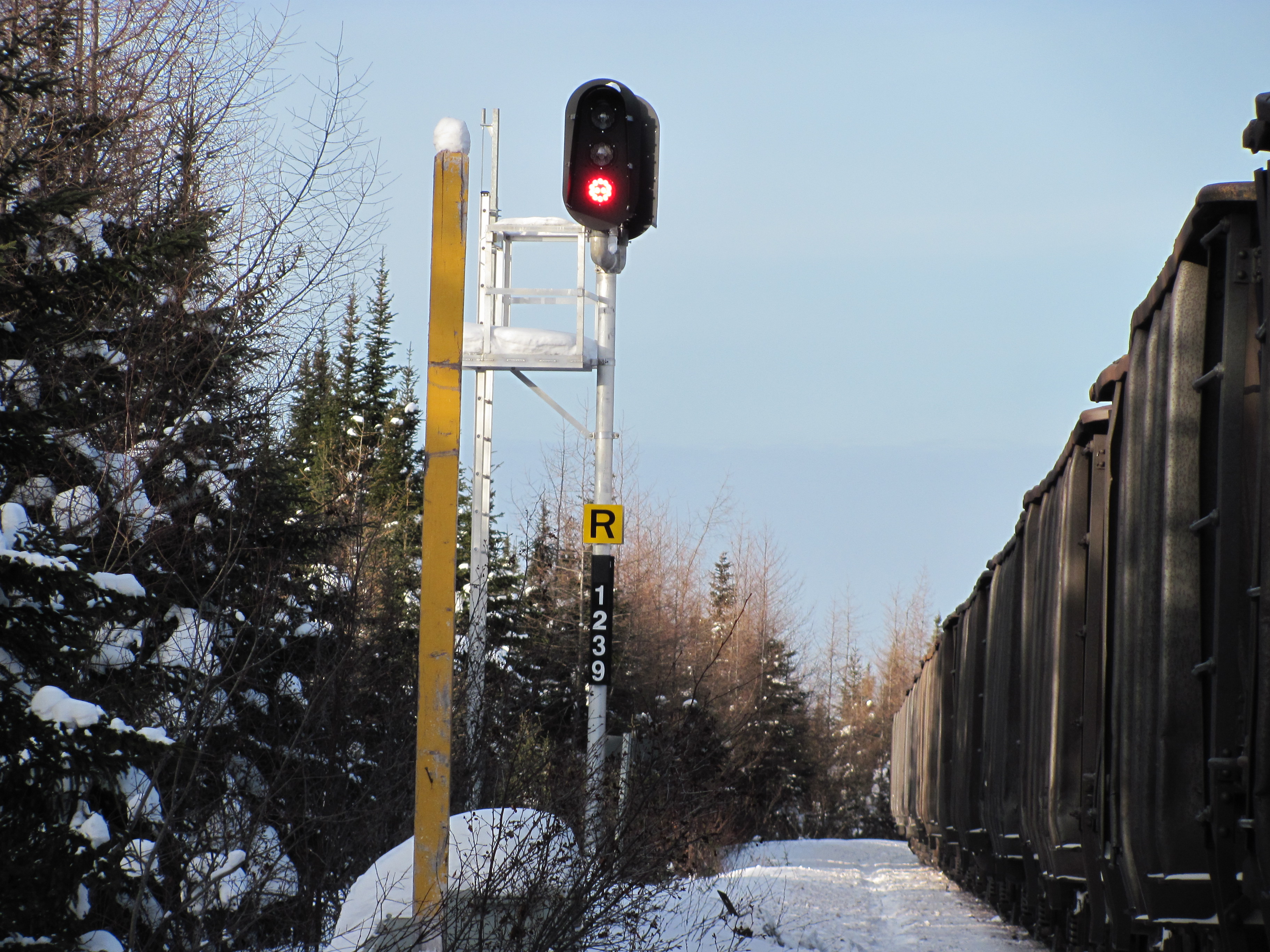Collision and derailment
Quebec North Shore and Labrador Railway freight
train FCN 05 and iron ore train BNL 005 at
Mile 124.2, Wacouna Subdivision, near Mai, Quebec
The occurrence
On 11 January 2013, at approximately 0018, Eastern Standard Time, freight train FCN 05 collided with the rear end of iron ore train BNL 005 at Mile 124.2 on the Quebec North Shore and Labrador Railway's Wacouna Subdivision, near Mai, Quebec. The first locomotive on train FCN 05 was completely destroyed and the second locomotive derailed. Eight cars on train BNL 005 derailed. The members of the FCN 05 train crew sustained minor injuries. Approximately 40 feet of track was damaged.
Media materials
News releases
Inadequate training and supervision contributed to a collision and derailment between a freight train and a stationary iron ore train near Mai, Quebec
Read the news release
Deployment notice
Transportation Safety Board of Canada deploys a team to investigate a rail accident north of Sept-Îles, Quebec
The Transportation Safety Board of Canada (TSB) is deploying a team of investigators to the site of a rail accident approximately 200 km north of Sept-Îles, Quebec. At 12:20 this morning local time, a Quebec North Shore and Labrador Railway freight train that was stopped for a signal indication was struck from behind by a following train. The TSB will gather information and assess the occurrence.
Download high-resolution photos from the TSB Flickr page.
Class of investigation
This is a class 3 investigation. These investigations analyze a small number of safety issues, and may result in recommendations. Class 3 investigations are generally completed within 450 days. For more information, see the Policy on Occurrence Classification.
TSB investigation process
There are 3 phases to a TSB investigation
- Field phase: a team of investigators examines the occurrence site and wreckage, interviews witnesses and collects pertinent information.
- Examination and analysis phase: the TSB reviews pertinent records, tests components of the wreckage in the lab, determines the sequence of events and identifies safety deficiencies. When safety deficiencies are suspected or confirmed, the TSB advises the appropriate authority without waiting until publication of the final report.
- Report phase: a confidential draft report is approved by the Board and sent to persons and corporations who are directly concerned by the report. They then have the opportunity to dispute or correct information they believe to be incorrect. The Board considers all representations before approving the final report, which is subsequently released to the public.
For more information, see our Investigation process page.
The TSB is an independent agency that investigates air, marine, pipeline, and rail transportation occurrences. Its sole aim is the advancement of transportation safety. It is not the function of the Board to assign fault or determine civil or criminal liability.



